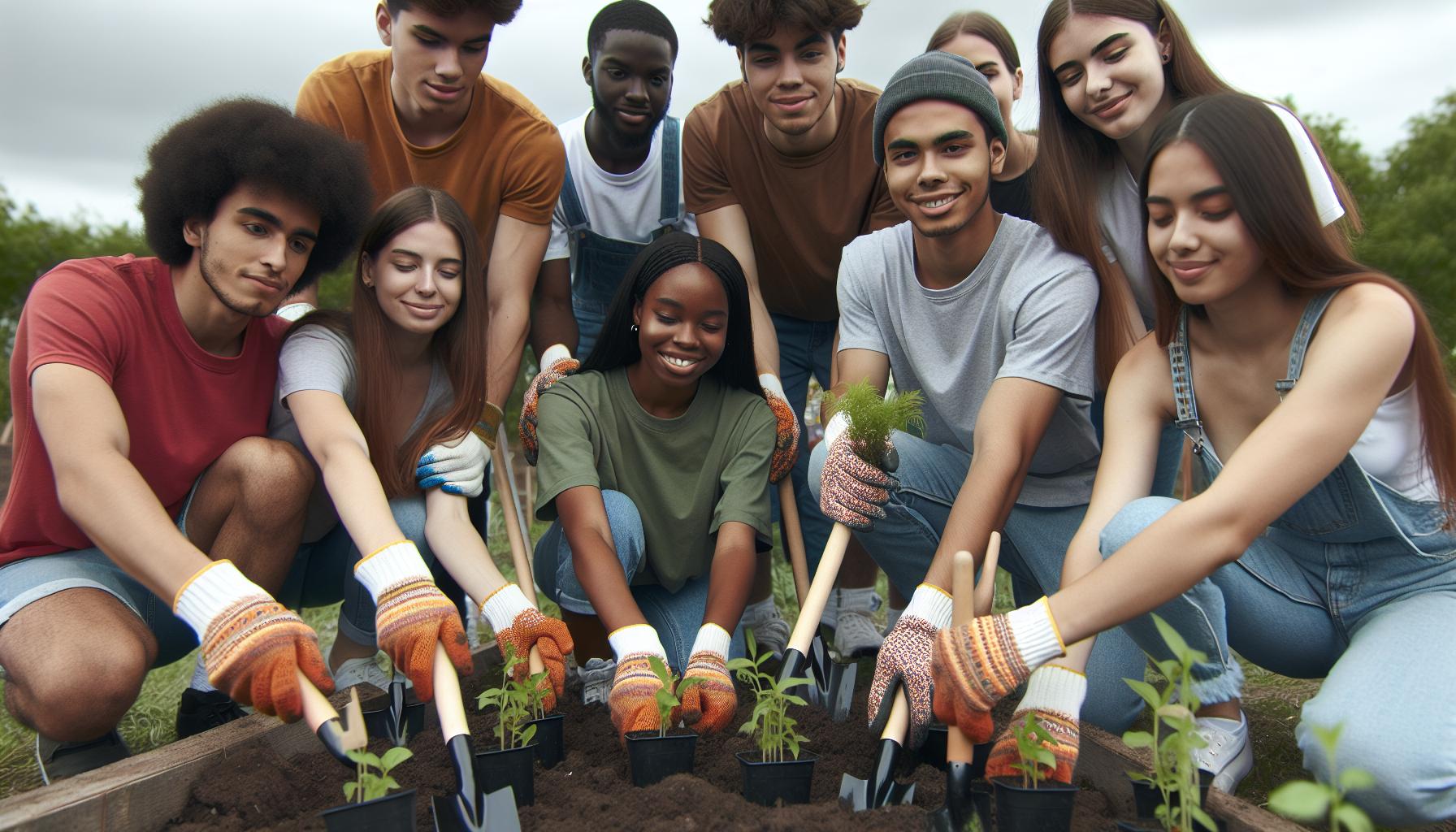In a world where plastic straws seem to have a vendetta against sea turtles, the sustainability merit badge workbook is a breath of fresh air—literally. This isn’t just a badge; it’s a ticket to becoming an eco-warrior armed with knowledge and a sprinkle of humor. Who knew saving the planet could be this fun?
Sustainability Merit Badge Workbook
The sustainability merit badge workbook serves as a comprehensive resource for individuals aspiring to champion environmental stewardship. It promotes hands-on learning about sustainable practices while making the process enjoyable.
Purpose of the Workbook
This workbook aims to guide users through the fundamentals of sustainability. Its objective involves empowering individuals to make informed choices about their environmental impact. Participants engage with various activities designed to develop awareness of ecological issues. They explore practical steps that foster a positive relationship with the planet. Through this process, the workbook inspires a commitment to conservation and responsible living.
Key Concepts Covered
Several key concepts feature prominently within the workbook. First, individuals learn about waste reduction and recycling strategies. Next, the significance of renewable energy sources comes into focus. Discussions about biodiversity highlight the importance of ecosystems and species preservation. Sustainable agriculture practices receive attention, demonstrating how food choices affect the environment. Finally, the workbook emphasizes the interconnectedness of human activities and ecological health, encouraging a holistic perspective on sustainability.
Requirements for Earning the Badge


Earning the sustainability merit badge involves specific skills and practical activities that foster environmental awareness. Engaging with these components enhances understanding of sustainability principles.
Skill Sets Required
Critical thinking plays a significant role in analyzing environmental issues. Communication skills encourage effective discussions about sustainable practices. Research abilities help identify innovative solutions for reducing ecological footprints. Problem-solving skills empower individuals to tackle real-world sustainability challenges. Collaboration encourages teamwork in community-based environmental projects.
Practical Activities Involved
Participants engage in data collection to assess local environmental conditions. Field trips to nature reserves facilitate firsthand learning about ecosystems. Conducting waste audits reveals opportunities for reduction and recycling. Creating a personal sustainability plan fosters individual commitment to eco-friendly practices. Volunteering for community clean-up events enables impactful contributions to local environments.
Benefits of Completing the Workbook


Completing the sustainability merit badge workbook offers several advantages. Participants experience significant personal growth while gaining valuable skills.
Personal Growth and Development
Engaging with the workbook fosters self-confidence. Participants tackle real-world challenges related to sustainability, enhancing their problem-solving abilities. They sharpen critical thinking skills, which play a crucial role in environmental decision-making. Additionally, collaborating with peers on projects promotes teamwork and communication skills. The workbook encourages individuals to reflect on their values and one’s impact on the environment. Learners also develop a sense of responsibility, driving them to take ownership of their actions and become proactive in promoting sustainability.
Environmental Awareness and Advocacy
Knowledge gained from the workbook cultivates a deeper understanding of environmental issues. Participants learn the importance of biodiversity, which enhances their appreciation for ecosystems. By exploring renewable energy sources, they develop strategies to reduce their carbon footprint. The workbook encourages advocacy, empowering individuals to speak out on environmental concerns. Furthermore, engaging in community-based projects fosters a sense of belonging and highlights the collective impact of small actions. Participants emerge as informed advocates, ready to inspire others about sustainable practices and create lasting change.
How to Get Started


Getting started with the sustainability merit badge workbook feels exciting and rewarding. Individuals can jump into this journey with the right approach.
Gathering Necessary Materials
Collect necessary materials before diving deep into the workbook. Participants should have a notebook or journal for reflections and notes. Access to a computer or tablet helps when researching various environmental topics. Gathering tools for activities, such as recycling bins for audits and art supplies for projects, also enhances the learning experience. Reference books about sustainability or online resources make valuable additions to the arsenal of materials.
Setting Goals and Timelines
Establishing clear goals and timelines is essential for progress. Setting specific objectives guides participants through the workbook activities. Milestones can break down larger tasks into manageable steps, ensuring consistent advancement. Monthly goals may include completing a set number of activities, such as waste audits or community events. Timelines provide structure and keep everyone accountable, allowing them to reflect on achievements and challenges periodically. Individuals can adjust their goals as they gain more insights, fostering a sense of accomplishment throughout the process.
A Transformative Journey
Completing the sustainability merit badge workbook is more than just a badge; it’s a transformative journey toward becoming an eco-conscious individual. Participants not only gain practical skills but also foster a sense of responsibility toward the environment. Engaging in hands-on activities and community projects cultivates a deeper understanding of sustainability principles.
As they navigate through the workbook, individuals build confidence and develop essential skills that extend beyond environmental awareness. This experience empowers them to inspire others and advocate for sustainable practices in their communities. Embracing this journey paves the way for a more sustainable future, where informed choices lead to meaningful change.



